- Home
- David Lubar
Teeny Weenies: Freestyle Frenzy Page 2
Teeny Weenies: Freestyle Frenzy Read online
Page 2
He pointed to the ground, where I saw a bottle.
“I think someone threw this at me,” he said.
I looked around, There was nobody in sight, not counting the squirrels.
“Maybe it fell out of the sky,” I said.
“Very funny.” He swung his arm in a circle, flexing his shoulder. “Take another lap. I want to rest this for a minute.”
“Sure.” That was fine with me, especially since I’d stopped to pick up papers during my first lap.
This time, as I was coming into the last turn, I actually did see what hit Rudy. And it really did fall from the sky. The sunlight flashing off it as it tumbled caught my attention. It bonked Rudy on the head with a clang I could hear over the whine of the engine. But at least it wasn’t a glass bottle. That would have been really bad.
When I finished my lap and got off the cart, I saw he’d been beaned by a soda can. Good thing it was empty.
“I think we should go inside,” I said. I grabbed the papers from the seat and tucked them under my arm. I’d find somewhere to recycle them later.
“No way,” Rudy said. “I waited a week for the new battery, and I need to get ready for the next race. I’m riding all afternoon. You can go home if you want. I’m not going anywhere.”
Rudy got back on the cart, floored the accelerator, and zoomed off. As the stink of exhaust faded, I sniffed the air. It smelled like someone was cooking spaghetti sauce. But there were no other houses near us beside Rudy’s, and I knew his parents didn’t like to cook.
I sniffed again, then pulled the papers from under my arm. The one on top had some red stains that looked a lot like sauce. It smelled like sauce, too. I turned the page over. My hand clutched it harder as I realized what I was holding. It was a page from the report Rudy had tossed in the garbage.
I looked down at the bottle. It was Crunch Kola, Rudy’s favorite brand.
And the can that just fell was Orange Zap, like the one he’d tossed into the trash yesterday.
Then, something hit me. But not from the sky. The thing that struck me came from my brain. The Earth was tossing back the things Rudy had thrown out! If that thought was like a smack to the head, the one that followed was like a dropkick to the gut by a mule with a black belt in karate.
Oh no …
The paper.
The bottle.
The can.
The things he hadn’t recycled were coming back in the same order they’d been tossed out. I shuddered when I realized what might be falling next.
I looked across the lot, where Rudy had just entered the loop, about halfway around the track.
“Rudy!” I shouted, waving.
“What?” he shouted back.
“What did you do with the old battery?” I yelled.
He shook his head. “I can’t hear you.”
It didn’t matter. I had a feeling I knew the answer. He hadn’t recycled the battery. He’d thrown it out.
I looked up above Rudy as he reached the last turn.
“Watch out!” I screamed, pointing at the battery that was dropping from the sky like a ton of lead. Which is sort of what it was, except closer to five pounds, and not all lead.
Thanks to my warning, Rudy hit the brakes, but not soon enough to totally avoid getting clobbered. As he’d said, one little soda can might not make a difference. But one battery surely did.
Rudy was lucky to walk away with nothing worse than a broken arm, three cracked ribs, and a whole new appreciation for the importance of recycling.
I had a feeling Earth Day had finally made a lasting impression on him.
CAN YOU STAND SUCCESS?
“This isn’t working,” I said to my friend, Katie, as the ten thousandth car drove past us without stopping. About fifteen thousand people had also walked by. Okay, I like to exaggerate, but that’s what it felt like.
“You’d think people would want lemonade on a hot day like this,” Katie said.
“I sure do,” I said as I drank another cup.
“Hey, you’re drinking all our profits,” Katie said.
“We don’t have any profits,” I said.
We decided to knock off and go into town. Since we didn’t have much money, we headed straight to the old secondhand shop, to see what they had. I found a nice scarf I couldn’t afford, and Katie saw a beautiful wallet she couldn’t afford. And then, Katie spotted the old book.
“Wishes,” she said, reading the title. “Spells and Potions,” she added, reading the words below the title.
I looked at the cover. There was a word above Wishes. It was all faded except for the last two letters, which were st.
“Best Wishes,” I said. My parents were always saying that to people who were about to do something important, like get married or start a business. “We could definitely use some of those.”
“Maybe there’s one that can help us sell lemonade,” Katie said.
She flipped the book open and, like magic, we were staring at a spell that promised endless success in business.
“That’s worth a try,” Katie said.
“I don’t know,” I said. “Maybe we shouldn’t mess around with magic.”
Katie ignored me and checked the price written in pencil on the inside cover of the book. “Hey, I can almost afford this. Can you chip in the rest?”
“I guess.” I gave her the money she needed.
After she bought the book, we took it to her house, and gathered up the ingredients for the spell. We had to make a powder, and then sprinkle it on the table where we sold our lemonade. We set the table up again in the morning.
“I hope it works,” Katie said.
“Don’t get your hopes up,” I said.
A car pulled over by the curb. “Oh, thank goodness I spotted you. I need all the lemonade you have,” a woman said. “I’m late for a meeting of my book club, and I promised to bring refreshments.”
She bought all the lemonade, and the jar we’d made it in.
“Wow,” Katie said. “The spell worked.”
“We need more lemons,” I said.
“And another jar,” Katie said. “You go to the store for lemons, I’ll get another jar from the basement.”
There was a market right down the block. I ran there, bought lemons with some of the money we’d made from the lemonade, and met Katie in her kitchen, where we whipped up another batch.
By the time we got back to our table, there was a line of people waiting for a drink. Before we knew it, we were out of lemonade again, but not out of customers.
“Buy more lemons this time,” Katie said. “And cups. We’re almost out.”
“Find a bigger jar,” I said.
We got more supplies.
I was afraid people would leave if they had to wait, but when I got back from the market, the line was even longer, and thirstier.
We made lemonade all day. I kept running back to the market for lemons and sugar. But no matter how fast we worked, the line never got shorter.
“We need to stop,” I said to Katie. “I’m exhausted.”
“No!” someone in the crowd shouted.
Others shouted, too.
“I’ve been waiting half an hour!”
“Don’t you dare close!”
“I’m back for another cup!”
“This is the best lemonade ever!”
“I brought my whole family this time!”
I realized it would be a bad idea to stop. I didn’t want to have to deal with an angry mob.
“Get the book,” I said.
“Why?” Katie asked.
“We need to find a spell for business failure,” I said.
Katie got the book. When I opened it, I saw the title page, and my heart sank. I’d thought it was a book full of the best wishes. But the title was Worst Wishes.
I remembered something my grandmother used to say all the time: “Be careful what you wish for.”
I’d never understood what that meant until now.
“Look at this.” I showed Katie the page and tapped the title. “We were real Weenies to mess around with spells.”
“Worst-wish Weenies,” Katie said.
By the end of the day, Katie and I were totally exhausted. We still had customers, but there was nothing we could do about that. The store was out of lemons.
“Sorry, folks,” I said before Katie and I went inside. “We’re closed.”
We ran inside to escape their cries of disappointment.
“I’m glad that’s over,” Katie said.
“Me, too,” I said.
I guess, at that point, neither of us understood just how powerful a spell we’d cast, because the line was still there in the morning. We were greeted with more shouts.
“Look, they’re open!”
“It’s about time!”
“This will be my tenth cup!”
I raced to a different store for lemons.
“It’s going to be a long summer,” I said to Katie when I joined her in the kitchen.
“Maybe the spell will wear off,” she said.
I sighed, and said the only thing I could. “I wish…”
THE SPLINTER
“Yeeoowcchhh!”
All around town, and possibly as far away as neighboring states, folks couldn’t help but hear Harlan’s shout as the dreadful splinter jabbed its way beneath the skin at the tip of his forefinger.
“OOOWWWWWW! It hurts!” Harlan yelled, jerking his hand back from the porch railing and acting like a complete Weenie.
The splinter—huge as a broomstick and long as a flagpole—jutted from Harlan’s finger, throbbing and aching with a pain almost beyond anything he could stand.
“What’s all the shouting about?” Harlan’s mother asked as she rushed out to the porch.
“I got a splinter,” Harlan cried. An instant later, he knew he should never have spoken. As bad as a splinter was—there was something worse in the world. The cure …
“Well, stop your hollering,” his mother said. “Wait here while I get a needle.”
Harlan could feel his stomach shrinking into a shriveled ball. His hair stood on end and his legs turned to cooked strands of spaghetti as he heard the dreadful word.
Needle!
He decided to run to somewhere safe, but his mother was too fast. Before Harlan could even reach the steps, she had returned and grabbed his wrist.
“Here we go,” she said, holding up the gleaming needle, sharp as a dagger and cold as a winter night. “I’ll have that mean old splinter dug out in no time.”
“NOOOO!” Harlan shouted, yanking his hand free. “It will hurt!”
“Nonsense,” his mother said, grabbing his wrist again. “Just be still for a moment.”
“It hurts!” Harlan screamed. He screamed the same message several more times. Once might have been enough, but Harlan didn’t have a lot of control at the moment.
His mother raised the needle and studied Harlan’s finger. Harlan braced himself for unbearable pain. His mother looked closer. Harlan waited.
“Where?” she asked.
“What?” Harlan asked.
“Where’s the splinter?” she asked.
Harlan looked at his finger. Then, he looked closer. And then, he looked even closer. There was no splinter. He realized that it must have fallen out when he was jerking his hand around. Harlan took a deep breath to calm himself. It was over. No more splinter. No more needle. No more pain.
His mother patted him on the head. “Maybe you imagined it.”
“No, really, I had a splinter. Look.” Harlan pointed to the tiny hole in the tip of his finger.
“I see,” his mother said. “Well, we’d better wash it out with soap and hot water. We don’t want to risk an infection.” She grabbed Harlan’s wrist and led him toward the kitchen sink.
“NOOOO!” Harlan hollered. “It will sting!”
And it did.
OPENING DAY #1
“Play ball!”
The umpire’s shout rang throughout the stadium.
“Finally!” Jacob said. He’d been waiting months for the most magical day in April to arrive. It was opening day of baseball season, and this was his first time ever in a real stadium.
Until this year, his family had lived far from any stadiums. But they’d moved last winter, and now lived less than two miles from a minor-league ballpark. Ever since then, his parents had promised to take him to a game.
And here he was, sitting in the front row of the upper deck, halfway down the first base line. “These are great seats,” he said.
“Just keep your eyes open,” his dad said.
As if to prove how good that advice was, the batter swung late and hit the first pitch foul. It shot into the stands, right toward Jacob.
SMACK!
His dad caught it in the glove he’d brought.
“Wow!” Jacob said as his dad plucked the ball from the glove and tossed it to him. “This is the best day ever! The only thing that would make it even more amazing was if I could be playing down there.”
He pointed toward the infielder who was covering second base. That was his favorite position.
“It could happen someday,” his dad said. “If you work hard to achieve your dreams, you can do anything.”
“It takes a lot of dedication to become a professional,” his mom said. “But I know you can do it if you set your mind to it.”
“I can definitely work hard. I’ll be down there someday.” Jacob turned his attention back to the game. But toward the end of the third inning, his stomach started to distract him by growling. It didn’t help that there was a hot dog stand at the top of their section. The smell was calling to Jacob. He loved hot dogs so much, his friends called him “Weenie Boy.”
“Can I get a snack?” he asked.
“That’s part of the pleasure of the ballpark,” his dad said. He handed Jacob some money. “Here. Get us all something.”
“Thanks.” Jacob slipped out of his seat and squeezed his way past spectators until he reached the steps at the end of the row.
“Be careful,” his mom called after him.
“I will,” he called back.
Halfway up the steps, and halfway toward a juicy grilled hot dog, Jacob heard the hard CRACK! of a solid hit. He spun around just in time to see a line drive sizzle across the infield. It ripped past the pitcher, hit the ground hard, and took a bad hop as the second baseman knelt to scoop it up.
Jacob flinched in sympathy as the ball socked the player in the head. He could almost feel the impact himself as the man crumpled. Other players and the umpire rushed over. They crowded around the fallen second baseman. A trainer came. The whole stadium held its breath, watching and waiting. Finally, the player got to his feet.
He headed for the dugout, helped by his teammates. He was walking shakily, but he managed to wave to the crowd. Everyone cheered for him, no matter which team they were rooting for.
“Ladies and gentlemen, can I have your attention, please,” the announcer said. “We need a volunteer to fill in at second base.”
Jacob raised his hand and shouted, “I’ll do it!” His voice boomed through the air just like the announcer’s.
People all around the stadium turned their heads to stare at him. Then, they all applauded.
Jacob made his way to the field, and then trotted to second base. He was happy to discover that the glove the player had dropped wasn’t a bad fit for him.
I’m on a real field, he thought. I’m in a real ballpark, playing in a real game. He reached down and plucked a couple blades of grass from the ground. He crushed them in his palm and enjoyed the sweet green smell.
“Play ball!” the umpire shouted.
Jacob played. He played hard, and he played great. He made leaping dives and heroic throws. He hit two doubles and a triple. His team, which had been down by three runs when Jacob took his position, was up by three at the end of the eighth inning.
Three more outs and I’m a
hero, Jacob thought as the visitors took their last chance at bat at the top of the ninth inning. He waved to his parents in the stands, and thought about how amazing it would be to become the youngest professional baseball player of all time.
The inning started badly. The other team scored twice, and now had runners on first and second. Jacob wasn’t worried. He knew this rally would just give him a chance to look even better when he saved the day for his team.
Jacob caught a sizzling line drive for the first out. It smacked his glove so hard, it almost lifted him off his feet. He dove to snag a grounder from the next batter, then rolled to his feet and snapped a burning throw into the waiting glove of the first baseman for the second out.
The grounder allowed the runners to advance. There were men on second and third now. If the next batter hit a single, that would tie the game. A double would put the other team ahead. The whole stadium was silent as the batter came to the plate. Jacob remembered he was a power hitter who had sent every ball he connected with straight up the center.
I’m ready for this, he thought, as he shifted slightly closer to the base so he could snag the hit when it rocketed across the infield.
He turned toward his parents and flashed a thumbs-up. This would be his greatest moment. He’d make the out, end the game, and have a dazzling start to his career as a professional baseball player.
What a great start it would be! He was batting 1,000. He hadn’t made a single error. He’d have the best stats of any player, ever. It was like a dream come true.
CRACK!
Jacob was startled out of his thoughts by the sound of a solid hit. He looked toward the plate just in time to see the ball hissing straight toward him, traveling impossibly fast. He threw up his glove, but he was too late. The ball clobbered him in the forehead.

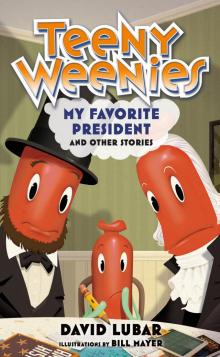 Teeny Weenies: My Favorite President
Teeny Weenies: My Favorite President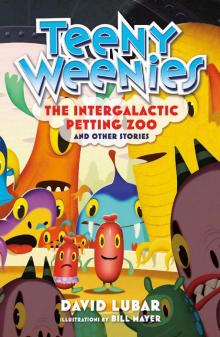 Teeny Weenies: The Intergalactic Petting Zoo
Teeny Weenies: The Intergalactic Petting Zoo Teeny Weenies: The Eighth Octopus
Teeny Weenies: The Eighth Octopus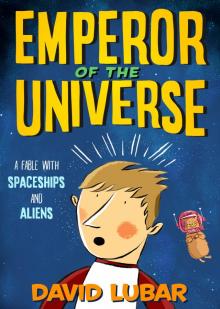 Emperor of the Universe
Emperor of the Universe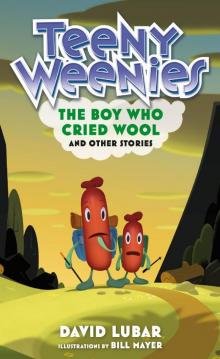 Teeny Weenies: The Boy Who Cried Wool
Teeny Weenies: The Boy Who Cried Wool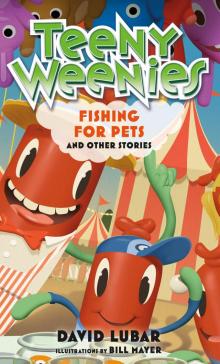 Teeny Weenies: Fishing for Pets
Teeny Weenies: Fishing for Pets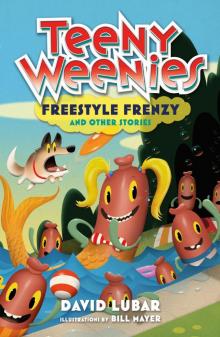 Teeny Weenies: Freestyle Frenzy
Teeny Weenies: Freestyle Frenzy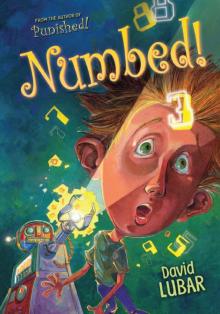 Numbed!
Numbed!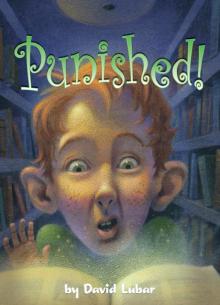 Punished!
Punished!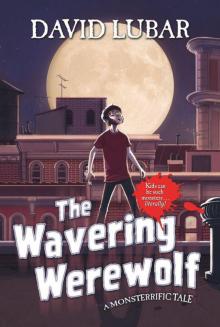 The Wavering Werewolf: A Monsterrific Tale (Monsterrific Tales)
The Wavering Werewolf: A Monsterrific Tale (Monsterrific Tales)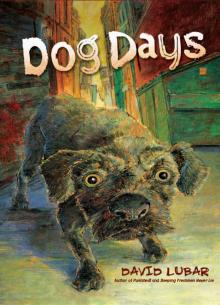 Dog Days
Dog Days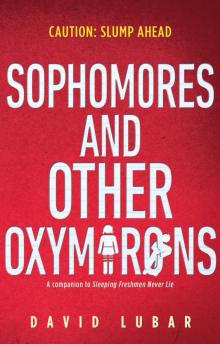 Sophomores and Other Oxymorons
Sophomores and Other Oxymorons The Psychozone
The Psychozone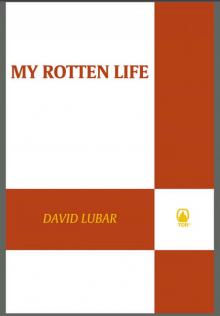 My Rotten Life
My Rotten Life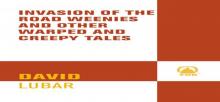 Invasion of the Road Weenies
Invasion of the Road Weenies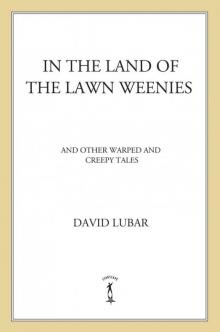 In the Land of the Lawn Weenies
In the Land of the Lawn Weenies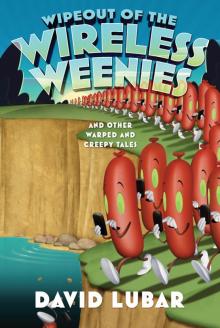 Wipeout of the Wireless Weenies
Wipeout of the Wireless Weenies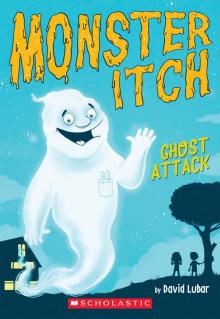 Ghost Attack
Ghost Attack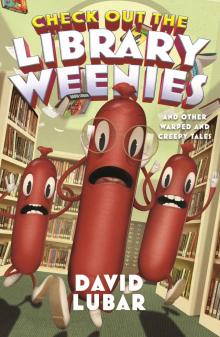 Check Out the Library Weenies
Check Out the Library Weenies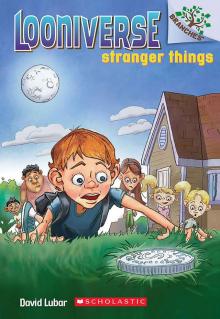 Looniverse #1: Stranger Things (A Branches Book)
Looniverse #1: Stranger Things (A Branches Book)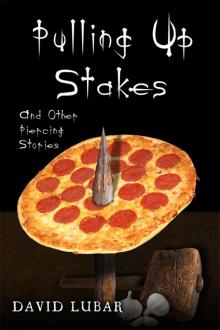 Pulling up Stakes and Other Piercing Stories
Pulling up Stakes and Other Piercing Stories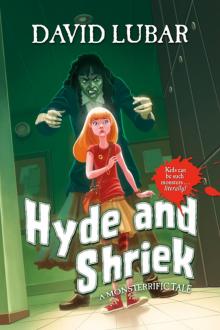 Hyde and Shriek
Hyde and Shriek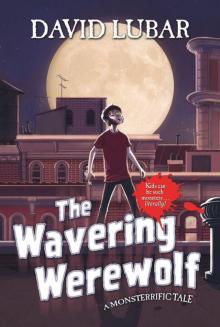 The Wavering Werewolf
The Wavering Werewolf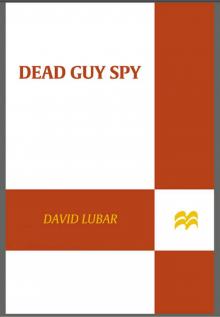 Dead Guy Spy
Dead Guy Spy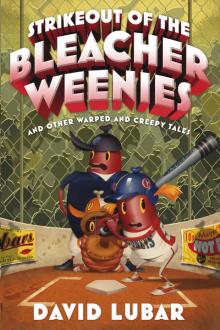 Strikeout of the Bleacher Weenies
Strikeout of the Bleacher Weenies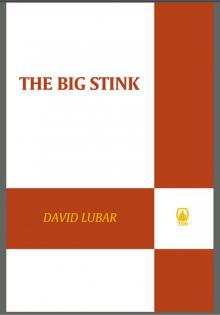 The Big Stink
The Big Stink The Battle of the Red Hot Pepper Weenies
The Battle of the Red Hot Pepper Weenies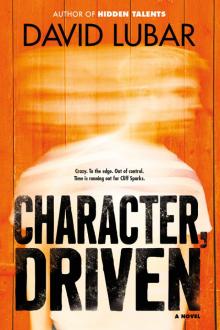 Character, Driven
Character, Driven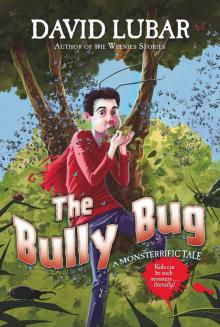 The Bully Bug
The Bully Bug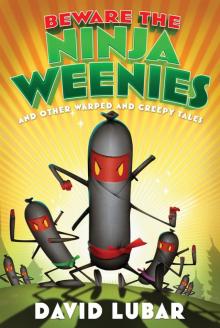 Beware the Ninja Weenies
Beware the Ninja Weenies Extremities: Stories of Death, Murder, and Revenge
Extremities: Stories of Death, Murder, and Revenge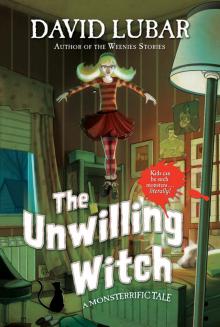 The Unwilling Witch
The Unwilling Witch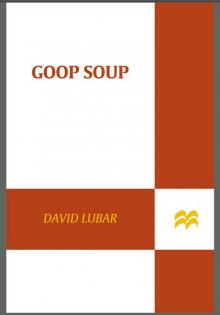 Goop Soup
Goop Soup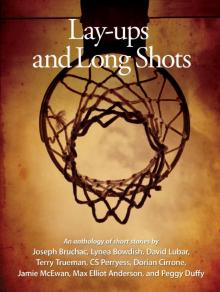 Lay-ups and Long Shots
Lay-ups and Long Shots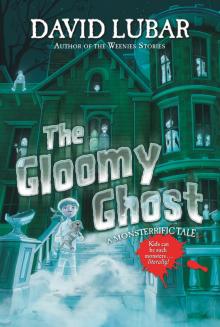 The Gloomy Ghost
The Gloomy Ghost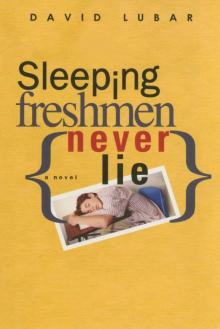 Sleeping Freshmen Never Lie
Sleeping Freshmen Never Lie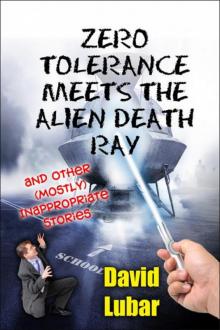 Zero Tolerance Meets the Alien Death Ray and Other (Mostly) Inappropriate Stories
Zero Tolerance Meets the Alien Death Ray and Other (Mostly) Inappropriate Stories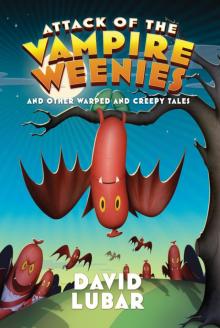 Attack of the Vampire Weenies
Attack of the Vampire Weenies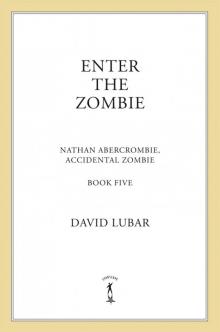 Enter the Zombie
Enter the Zombie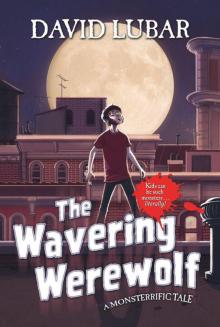 The Wavering Werewolf_A Monsterrific Tale
The Wavering Werewolf_A Monsterrific Tale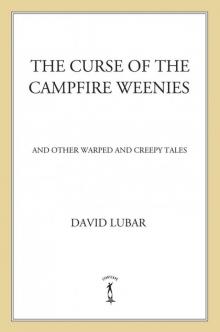 The Curse of the Campfire Weenies
The Curse of the Campfire Weenies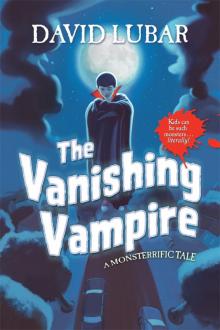 The Vanishing Vampire
The Vanishing Vampire